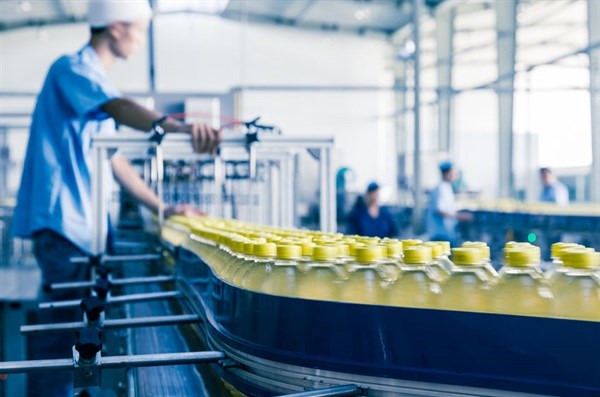Reputational risks with a 31% rating occupy the #2 spot, showing a decrease from 2017. Risks from natural catastrophes and fire are at #3 and #5 respectively as new risks in the sector. Quality deficiencies, serial defects and product recall were #4 despite showing an 11% decrease from 2017. The report is published annually by Allianz Global Corporate & Specialty (AGCS).
Complex supply chains
The food and beverage industry supply chain is comparatively complex. Food and beverages are perishable and this requires that supplies are delivered to the end user as fresh as possible. The Allianz Risk Barometer 2018 ranks business interruption from supply chain disruption as a top risk in the food and beverage industry. In South Africa, the entire industry is dependent on the transport network. An interference in the logistics and transport network such as a strike leads to business disruption. As a result, a sizeable amount of revenue is lost by businesses operating in the sector.
Catia Folgore, liability expert at AGCS Africa, says, “The recent listeriosis outbreak led to a recall of many meat products from the country’s supermarkets. This confronted the implicated firms with reputational risks and brand disassociation which is the second biggest risk in the sector, according to the Allianz Risk Barometer. As certain food brands are condemned by health authorities, consumers reduce their purchase of the products. Companies try to regain consumer confidence by adhering to food and safety regulations through intense PR campaigns, but usually the consumers will have moved to other brands. Businesses in the food and beverage sector suffer monumentally from loss of brand value.
“Risks from natural catastrophes acutely affect the agricultural sector. The food and beverage supplies are primarily sourced from agriculture. Droughts in the Western Cape and North West provinces are quintessential of how natural catastrophes, temporary or perennial affect the food and beverage industries. An infestation of the armyworm in the North West province recently reported. When crops are affected by pests, harvests are reduced and this leads to shortages of food products and increased prices.”
Concious consumption
The local food consumers are becoming increasingly conscious of what they eat. Consumers are asking for more organic and clean-label foods that can be carefully vetted and handled as food safety risks increase. The Allianz Risk Barometer 2018 presented quality deficiencies, serial defects and product recall as significant risks in the food and beverage sector. Serial defects in food products consequently lead to losses for businesses operating in the food and beverage sector.
The use of nanotechnology in food production is also a concern for the food and beverage industry. As public awareness and scientific evidence around the risks and benefits of nanoparticles increases, more regulation from health authorities is likely. Nanotechnology presents risks, especially in the product recall sector and in particular for the food and beverage industries, as personal injury exposures are most imminent.
“With increasing globalisation and leaner supply chains, the challenges faced by the beverage manufacturing insurance sector are among the most complex and demanding in the industry,” says Dr Klaus Burkhardt, global head of risk consulting liability at Allianz.




































